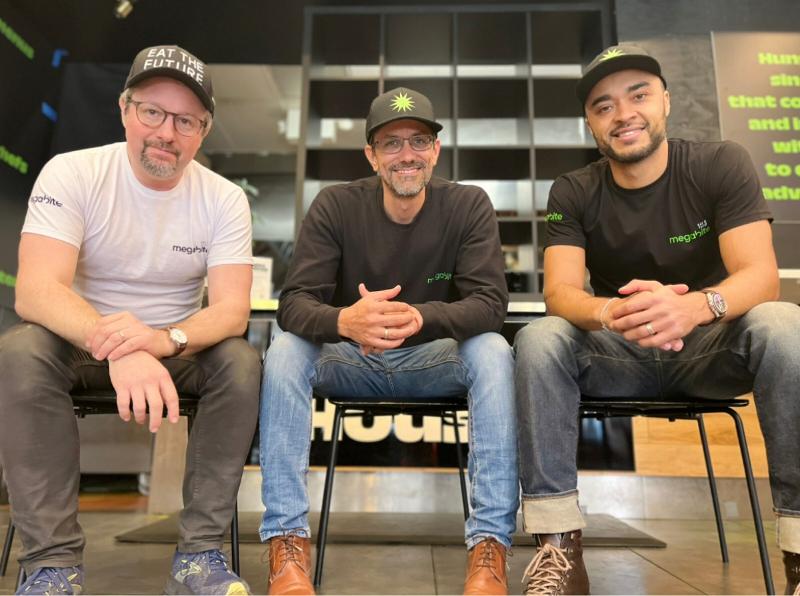
A pair of ghost kitchen-like restaurant concepts are joining forces to create a new entity that will span the Americas.
Hungry House, a multibrand, digitally native restaurant with two locations in New York City, is merging with MegaBite, a digital restaurant conglomerate with 13 outlets in Lima and Mexico City.
The result is BiteLabs, which hopes to combine the best of both companies as it looks to expand in both North and South America.
Hungry House, founded in 2021 by food tech entrepreneur Kristen Barnett, is a chef-centric riff on the ghost kitchen format. The company works with popular chefs to create a rotating selection of menus exclusive to Hungry House, such as Babushka by Emily Fedner and The Burger Show, a collaboration with chef Alvin Cailan. Hungry House does the cooking while the chefs help promote the concept on social media. Customers can order from multiple menus for pickup and delivery.
Over the past year, the company has found success tapping into the catering market, helping to triple its annualized revenue in 2023.
MegaBite was also founded in 2021 and calls itself one of Latin America’s leading delivery-focused multibrand restaurants. It has 16 brands, including Black Burger, Berry Hungry, Crazy Panda and Naked Pizza, that are available on third-party delivery apps and MegaBite’s own app. It uses proprietary technology and customer data to “hyper-personalize” the ordering experience, comparing itself to Spotify but for food delivery.
The combined company will draw on Hungry House’s catering expertise and MegaBite’s work with data and technology. Both will apparently remain separate concepts, but will share certain brands. MegaBite’s Poke for the People, for instance, is now on the menu at Hungry House.
“We believe that Hungry House and MegaBite, operating together, have the potential to be the most innovative, tech-enabled, multi-brand fast-casual restaurant group across the Americas,” said MegaBite and BiteLabs co-founder and CEO Pedro Neira in a statement.
The company will focus on opening new locations and growing revenue, which last year was $6 million combined.
And though it will be digitally native with a focus on delivery, don’t call BiteLabs a ghost kitchen. Instead, Neira compared it to fast casuals like Cava and Sweetgreen.
“The only difference is that we are serving multiple brands in our locations and not just one,” he said.
In addition to Neira, BiteLabs will be led by co-founders Andrew Corrigan, a chef and former regional area director for fast-casual chain Dig, and Solamon Cruz Estin, who has worked with delivery companies such as DoorDash and Uber Eats as well as the ghost kitchen provider CloudKitchens.
Corrigan will be BiteLabs' COO and head of culinary operations, and Cruz Estin will be its head of growth.
The merger was facilitated by venture capital firms Wilshire Lane Capital, Carao Ventures, SNR VC, McK Hospitality, Alaya Capital, Amarena VC, and independent investors including Russ Rosenband, Atit Jariwala, and Andrew Balogh.
It comes as a new wave of digital-first restaurants looks to evolve beyond the delivery-only ghost kitchen model. The new breed typically offers multiple brands and ordering channels and consolidates the cooking process in a single kitchen. Often called digital food halls, they emphasize selection and the ability to get multiple cuisines in one order.
Members help make our journalism possible. Become a Restaurant Business member today and unlock exclusive benefits, including unlimited access to all of our content. Sign up here.